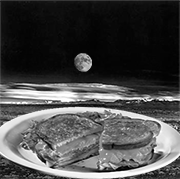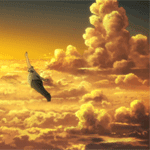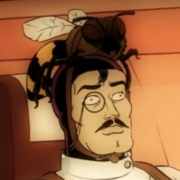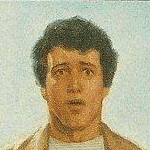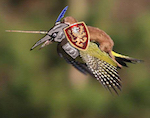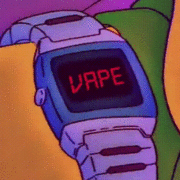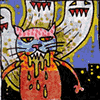|
hi liter posted:Make sure you manually set the levels on each scan. Also, check your epson scan software settings - theres a setting which makes the selection auto expose all the time which is annoying AF. Yeah, sure. If you want your scans to look "good" and "consistent"
|
|
|
|

|
| # ? May 12, 2024 11:03 |
|
SMERSH Mouth posted:Yeah, sure. If you want your scans to look "good" and "consistent" Since I'm still pretty new to film scanning there's certainly more I need to learn. I like the results of what I get when I get a good thumbnail mode scan... though whether it's 'correct' might be debatable. I did get a Minolta SRT 202 and some lenses (Rokkor 50mm f/1.7, Vivitar 70-210mm f/4.5, and a Kamero 28mm f/2.8) from a friend yesterday. Good Lord the 202 is built like a tank. Much heavier than my ES II. The dual focusing modes is pretty interesting along with how the metering system works. And I've heard good things about Minolta glass of that era so it will be cool to see how it goes once I get some rolls through it. The Vivitar seemed to have good reviews... but man was it hard to find anything out about the Kamero. As near as I can find it's a Mitake rebrand and that was about it. Could only find one comment regarding the quality of the lens and it was basically 'meh'. Didn't seem like a bad deal for $50. Plus it's no longer taking up space in my friend's place.
|
|
|
|
hi liter posted:Make sure you manually set the levels on each scan. this. don't expect your pictures to come out looking perfect out of the scanner. it's like making a physical print, you don't just throw it under the enlarger for a few seconds and hope for the best
|
|
|
|
ansel autisms posted:this. don't expect your pictures to come out looking perfect out of the scanner. it's like making a physical print, you don't just throw it under the enlarger for a few seconds and hope for the best Yep. Given I haven't really worked with film in like 20+ years there's a lot of rediscovery of things in here especially now that I add tech to the mix with scanning. Did some film scanning tonight and killed all the auto-processing (which Epson's software makes you do in a rather dumb way). Speaking of film scanning... are there any stand alone film scanners with LCD screens for review that are worth a drat? Since all of my current film work is shooting concerts in dark venues I've come to realize that the Epson software is dumber than a box of rocks when it comes to figuring out separate frames so I sometimes just have to scan a whole strip just to even review and find shots that are worthwhile (and then pull them out to edit). Just completely kills my workflow. Wouldn't be surprised if most are kinda poo poo or I have to really invest money to help with this. Just gently caress... I hate fighting dumb rear end software at times.
|
|
|
|
Use your monitor and a loupe
|
|
|
|
ansel autisms posted:Use your monitor and a loupe The funny part was I was just thinking I should get a light table and a loupe just for the time saving factor.
|
|
|
|
you can find some really cheap led light boxes online.
|
|
|
|
Understanding posted:you can find some really cheap led light boxes online. Yeah I had looked around a while back and found some really reasonable ones. Which is great since only one camera store here in Austin had one and it was pretty pricey. Never thought I'd have to consider going that route... but here we are.
|
|
|
|
There are also smartphone apps for 'white screen' or 'light table' functions that work ok in a pinch. I'm guessing you went to Precision. Have you tried Austin Camera and Imaging on Burnet? They have a bunch of old crap lying around that you might be able to piece together into something that suits your needs.
|
|
|
|
SMERSH Mouth posted:There are also smartphone apps for 'white screen' or 'light table' functions that work ok in a pinch. I'll need to hit up Austin Camera again to see what they have. I've picked up film and chemicals from them before but never specifically looked for anything like a light table.
|
|
|
|
I'm looking to start playing with some IR film, however, in the research I've done so far it seems that compatibility with different cameras can be hit or miss. I have two old, basic 35mm cameras in which it would probably work fine, however, I'm mostly trying to figure out if I could use it in my Canon cameras. Some sites just outright say you can't use IR film because it will fog, however, this far more detailed page appears to suggest that the fogging problem is only for the discontinued Kodak High Speed IR films. I can certainly just shoot a roll and see what happens, but if anyone has any experience with this I'd appreciate any tips. Can anyone confirm if this fogging issue doesn't happen with other types of IR film? For reference, I have a Canon EOS Elan II and an Elan 7, and the film I picked up is Rollei Infrared. Edit: Oh, both have the little film viewing window in the back, which seems to also cause problems, so I guess the Canons won't work. pseudorandom fucked around with this message at 17:21 on Sep 7, 2018 |
|
|
|
If the camera has a frame counter that uses a little IR emitter to count sprocket holes like the Nikon F80 I suppose it would fog. I can't imagine such a system would be blasting huge amounts of IR out the tiny LED it uses though and it would subjecting only the sprocket holes to IR; the image area would be blocked by the guide rails. Suppose light piping inside the acetate could happen. Probably only a serious issue with higher ISO films. If your camera isn't one of those that unwinds the whole roll before shooting (or if that can be turned off) it wouldn't be too hard to test without expending a lot of film. Take a few test shots, rewind, fish the film out of the canister with a retriever in the dark and clip off what seems like enough for a frame or two and develop that. Cut a new leader. Maybe your camera even has a setting to leave the leader sticking out when rewinding so you don't need to go fishing in the canister. If you're planning to use a visible light filter that only passes IR you might prefer older cameras and manual lenses. They usually have a mark on the aperture ring to help focus in IR. Don't know if EOS lenses have those.
|
|
|
|
I hope this isn't an intrusion into this thread, but I wasn't sure if I should start my own. I want to learn photography and specifically film. I was wondering what would be some good resources for starting basically from nothing. I have a general idea of how photography works as far as shutter speeds and aperture, but no real practical working knowledge. Basically I would appreciate any tips you guys could give me or even links to youtube videos or posts in this thread. I watched a few videos earlier about shooting film for beginners but they were all inane stuff like "Buy a camera and maybe sometimes expired film is still good", but there wasn't anything in regards to technique or how cameras work. I do have a camera and film to work with. The camera is a Minolta Maxxum 7000.
|
|
|
|
CPL593H posted:I hope this isn't an intrusion into this thread, but I wasn't sure if I should start my own. I want to learn photography and specifically film. I was wondering what would be some good resources for starting basically from nothing. I have a general idea of how photography works as far as shutter speeds and aperture, but no real practical working knowledge. Basically I would appreciate any tips you guys could give me or even links to youtube videos or posts in this thread. I watched a few videos earlier about shooting film for beginners but they were all inane stuff like "Buy a camera and maybe sometimes expired film is still good", but there wasn't anything in regards to technique or how cameras work. I do have a camera and film to work with. The camera is a Minolta Maxxum 7000. "Understanding Exposure" is a fantastic book to give you the basics of camera function, framing, exposure, etc. Almost all of his lessons can be applied to film or digital.
|
|
|
|
Your local library should have plenty of books on photography. My personal favorite is 'The Photographer's Handbook' by John Hedgecoe; it is an exceptionally broad book that goes into nearly every aspect of photography.
|
|
|
|
CPL593H posted:I hope this isn't an intrusion into this thread, but I wasn't sure if I should start my own. I want to learn photography and specifically film. I was wondering what would be some good resources for starting basically from nothing. I have a general idea of how photography works as far as shutter speeds and aperture, but no real practical working knowledge. Basically I would appreciate any tips you guys could give me or even links to youtube videos or posts in this thread. I watched a few videos earlier about shooting film for beginners but they were all inane stuff like "Buy a camera and maybe sometimes expired film is still good", but there wasn't anything in regards to technique or how cameras work. I do have a camera and film to work with. The camera is a Minolta Maxxum 7000. get some film, put it in a camera, see what works out. don't overthink it. technique is more your eye for photos instead of how you use gear
|
|
|
|
CPL593H posted:I hope this isn't an intrusion into this thread, but I wasn't sure if I should start my own. I want to learn photography and specifically film. I was wondering what would be some good resources for starting basically from nothing. I have a general idea of how photography works as far as shutter speeds and aperture, but no real practical working knowledge. Basically I would appreciate any tips you guys could give me or even links to youtube videos or posts in this thread. I watched a few videos earlier about shooting film for beginners but they were all inane stuff like "Buy a camera and maybe sometimes expired film is still good", but there wasn't anything in regards to technique or how cameras work. I do have a camera and film to work with. The camera is a Minolta Maxxum 7000. What do you want to accomplish, exactly? What kinds of pictures do you want to make? Is there a particular look you like, or do you have something you really want to say? You have to get in surprisingly deep before film photography, at its very fundamental heart and core, is really that much different from shooting digitally. The big difference is that you can't check your shots right after you shoot them (and even so, Instax), and I'd even suggest that digital is a better learning tool because EXIF data and fast feedback mean you can play with "exactly what does this do?" on a faster loop. The problem is, really, that "Buy a camera and maybe sometimes expired film is still good" isn't inane; it's honestly the best advice you've got for getting started. If you show us some pictures you like and tell us what catches your attention, we can probably tell you about how it was done, but when the photons hit the silver, once you understand the general idea of how photography works, the only way to get "real practical working knowledge" is... to practice and see what's working. Pick up a camera and start taking pictures. Pay attention to them. After a thousand or so you'll think you have a decent idea of what you're doing. After about ten thousand you might actually be right.
|
|
|
|
While film photography is a bit harder to get into than digital, since the feedback isn't as immediate so it's hard to tell WHAT it is you do wrong, I do think it's a good place to start out. It's certainly much cheaper - even a cheap digital camera that gives you control and a decent image will still be a couple hundred bucks, whereas you can get a good SLR, a solid lens, and probably even a couple rolls of film for under 100$. It's a much easier price point to dip your toes into. Manual cameras that are common in film cameras will also teach you the hard way how to focus, set exposure, etc. And, of course, you'll be forced to think about your shots more, since each one is basically you burning a couple of cents. I started with film a few months ago, and have been glad that I did.
|
|
|
|
Yond Cassius posted:What do you want to accomplish, exactly? What kinds of pictures do you want to make? Is there a particular look you like, or do you have something you really want to say? I appreciate the responses and especially the honesty of this post. I suppose I never thought exactly what style I'm trying to accomplish. I wanted to get the basic functioning down before I decided on something like that. I have an Instax Wide and some Polaroid 600s that I've used for taking pictures of birds in the park and old cars stuff like that. That's on the idea of what subjects I want to work with. Wild animals especially. I've always had an interest in taking pictures but now I've finally decided to do something about it. CodfishCartographer posted:Manual cameras that are common in film cameras will also teach you the hard way how to focus, set exposure, etc. And, of course, you'll be forced to think about your shots more, since each one is basically you burning a couple of cents. I started with film a few months ago, and have been glad that I did. This is part of why I wanted to get into it. Although the guy who sold me my camera steered me towards buying one that has automatic as well as manual control. All things considered it sounded like a good entry level choice. I'm sure someone will tell me I'm wrong about this for one reason or another but a major reason I wanted to learn film instead of digital is that a picture on film just is what it is. You have to do it properly and you have to know exactly what you're doing. With digital you can manipulate it in many ways after the fact. I'm not knocking people who use digital cameras and photoshop or whatever because that's absolutely a skill set but it's not the skill set I wanted to learn. I want to make pictures that come strictly from the camera.
|
|
|
|
CPL593H posted:I'm sure someone will tell me I'm wrong about this for one reason or another but a major reason I wanted to learn film instead of digital is that a picture on film just is what it is. You have to do it properly and you have to know exactly what you're doing. With digital you can manipulate it in many ways after the fact. I'm not knocking people who use digital cameras and photoshop or whatever because that's absolutely a skill set but it's not the skill set I wanted to learn. I want to make pictures that come strictly from the camera. You'd be surprised how much manipulation comes (or is possible) after scanning in your film into your computer. The closest thing to having a photo come directly from the camera (IMO) is a projected slide film shot. Even the black and white film photos taken by Ansel Adams or HCB had lots of darkroom manipulation - the former did it himself, the latter got a darkroom technician to do it.
|
|
|
|
alkanphel posted:You'd be surprised how much manipulation comes (or is possible) after scanning in your film into your computer. The closest thing to having a photo come directly from the camera (IMO) is a projected slide film shot. Even the black and white film photos taken by Ansel Adams or HCB had lots of darkroom manipulation - the former did it himself, the latter got a darkroom technician to do it. In fairness I haven't even stuck the film in the camera so we're pretty far away from anything like this, but I understand what you're saying.
|
|
|
|
CPL593H posted:I appreciate the responses and especially the honesty of this post. I suppose I never thought exactly what style I'm trying to accomplish. I wanted to get the basic functioning down before I decided on something like that. I have an Instax Wide and some Polaroid 600s that I've used for taking pictures of birds in the park and old cars stuff like that. That's on the idea of what subjects I want to work with. Wild animals especially. I've always had an interest in taking pictures but now I've finally decided to do something about it. Nah, some automation on a camera is fine, but when you're learning it's a good idea to do as much manually as you can, since that will force you to consider how changing the settings will effect the photo, which will force you to start thinking about what type of picture you want to create and what elements of the photo will help or hinder that. As for digital manipulation, I'd say most (all?) of the people here consider digital manipulation a part of the creative process of taking photos, at least to some extent. Film doesn't magically produce better photos than a digital sensor, either way you're exposing some light sensitive thing to light through a lens. If you can take a good photo without post-production on film, you can do the same with a digital sensor. While there is a literal physicality of having a photo saved on a piece of film, you will often still need to do fine-tuning with it to get it how you want. This has always been the case, even before computers - if your highlights are overexposed, you would bring them down by burning your print when enlarging it. Nowadays, you just fiddle with a "highlights" slider in your program of choice. There is a lot to be said about being able to take good photos straight from the camera without needing to adjust them, don't think of that as being more "pure" or "better" than using some amount of post-processing. 95% of what makes a good photo is the composition and exposure anyways, so if those fail then no amount of loving around in photoshop (short of drawing an entirely new picture) will save it. Try not to think of photoshopping a picture as faking one, try to instead think of it as part of the process of creating the image you intended all along. I find that working on post-production is kind of therapeutic in a different way than lining up and firing off a shot. It's kind of like baking a great cake, then frosting it. vvv Honestly yeah ignore all the poo poo I posted and just do this. vvv CodfishCartographer fucked around with this message at 05:00 on Sep 11, 2018 |
|
|
|
CPL593H posted:In fairness I haven't even stuck the film in the camera so we're pretty far away from anything like this, but I understand what you're saying. that's why you should just shoot and not worry
|
|
|
|
ansel autisms posted:that's why you should just shoot and not worry This but with a cheap/borrowed DSLR where you can adjust the settings and by doing so understand how to technically operate a camera to get a good exposure. After you have that down I'd say load up some film and learn how to make good photographs.
|
|
|
|
VelociBacon posted:This but with a cheap/borrowed DSLR where you can adjust the settings and by doing so understand how to technically operate a camera to get a good exposure.
|
|
|
|
disposables are cool and good
|
|
|
|
Interactive camera explainer. It's based on digital cameras, but it only deals with the same three variables that you'll need to work with on any film camera - ISO, shutterspeed and aperture. CPL593H posted:I'm sure someone will tell me I'm wrong about this for one reason or another but a major reason I wanted to learn film instead of digital is that a picture on film just is what it is. You have to do it properly and you have to know exactly what you're doing. With digital you can manipulate it in many ways after the fact. I'm not knocking people who use digital cameras and photoshop or whatever because that's absolutely a skill set but it's not the skill set I wanted to learn. I want to make pictures that come strictly from the camera. You'd be amazed at how wrong you are. If anything film has more of a pipeline for post-processing than digital shots. You take the picture, adjusting camera controls as needed. This is the same for film as for digital. Now you have exposed but undeveloped film. The way you develop it will affect the final image - the chemistry you use, the amount of time and agitation, temperature of the chemicals. All of this can be adjusted to give different results. Now you have negatives. Unless you want to just show people folders full of negs in real life, you need to scan them. Scanning also has a lot of variables that you can change to affect the final image - brightness, contrast, automatic image adjustments etc. Now you have digital images of your negative. You need to invert them, colour balance them to get rid of the colour cast from the substrate, spot out any dust and hairs., balance the exposure. Now you have a digital image that's at about the same point as an image exported from a digital camera. You can continue to edit it exactly the same and to pretty much the same degree as any other digital image - cropping, adjusting tone curves, colour temperature, exposure, histogram fixing, etc. At every single point in that process, you are making decisions that will change your final image. There is no such thing as an unedited image either with film or digital. Shooting film is like cookery, you will get different results each time by varying any one of the many different variables in the recipe.
|
|
|
|
Yeah if you think you're gonna get a nice film like look straight out of camera, you're gonna be sorely disappointed. You either have to do a lot of digital manipulation yourself or pay a lab to do it for you when they develop the roll.
|
|
|
|
This quite different than the impression of I was given as to how these things work by a guy who said he was a professional photographer. I'm not doubting any of you, I'm just kind of surprised.
|
|
|
|
I'm on the shoot digital first and jump to film later bandwagon. I had the same idea as you and had a 7000i for my first film camera. IMO the Maxxum 7000 isn't the best film camera to begin with as it's missing a couple of features that really help with applying the basics of what you'll be learning. Shooting in manual focus is a pain as it has no focusing aide, aperture and shutter speed settings are somewhat obfuscated and not as readily accessible as in older film cameras, and it's missing aperture preview a feature that allows you to check your depth of field before taking a shot. In saying that it is a good hands off camera. The autofocus works well and it meters and exposes accurately. It will get you well exposed and in focus shots in most situations. It will struggle with birding. Modern digital cameras are a much better tool for that. If you come to the birding thread you'll learn how much of a money pit that can be. Still, my advice would be to borrow a friend's old DSLR, or buy a second hand one for cheap, a Sony a230 would be good and also able to use the Minolta lens you have for the Maxxum. If you really want to dive into film first then one generation of cameras older will be a better learning tool. The Minolta X570/X700, Olympus OM10, Pentax ME/ME Super or any other manual focus camera from the time with an in viewfinder display, aperture priority mode and through the lens metering will be more hands on, but still be able to automate the most important aspect of photography, getting your exposure right. Those cameras are also much smaller and lighter than the 7000 and portability can not be understated. e: As for videos I really like The Art Of Photography, his basics playlist is very good and taught me a lot https://www.youtube.com/playlist?list=PLGEE7pGLuppT2MB0a7TYgBx_ZHDDHaEr6 Megabound fucked around with this message at 12:20 on Sep 11, 2018 |
|
|
|
The other thing is, what are your expectations of the results? Have you been seeing some good film shots on IG and thought to yourself "Hey I wanna do that"? Cause those good film shots were 100% not straight out of the camera. Get ready for learning how to properly digitially process film in photoshop. There is a learning curve there. You may be unpleasantly surprised at what you see from your first rolls. I say buy a cheap simple 35mm camera ($100 max) and buy some film and then go get it developed at the closest lab. The total cost might be max $200 (cam + film + dev + scan cause you probably dont have a scanner yet). At the lab, ask for process only and you scan the film yourself (scanning at the lab can be expensive).
|
|
|
|
Helen Highwater posted:You take the picture, adjusting camera controls as needed. This is the same for film as for digital. I'm going to take some small exception here. White balance can be a bear to work with in film, and your flexibility in development only really applies to black and white. In color, you can push or pull process a little bit to adjust your exposure (with some attendant changes in contrast and grain), but C-41 and E-6 are pretty rigidly standardized processes. CPL593H posted:This quite different than the impression of I was given as to how these things work by a guy who said he was a professional photographer. I'm not doubting any of you, I'm just kind of surprised. Think of your negative like a RAW file with a slightly messy import process. You have your choice of sensor (digital body, film) and a few presets (ISO, development process, lens/shutter/stability), and you pretty much have to get those right when you take the shot. With enough time and effort, everything else is negotiable. Your guy wasn't wrong per se, just speaking from a historical context where optical printing was the only option most people had, and most of that would be "straight prints" - adjusted a little bit for color, contrast, and overall exposure, maybe, but rarely hand-dodged-and-burned, retouched, composited, or anything like that. Ansel Adams had an expression that the negative was like a musical score, and the print like its specific performance. An all-analog darkroom doesn't have magnetic lassos or context-aware fills, so there was a certain extra pressure to get things right the first time, especially for straight prints (which would be a bit like running the score through a MIDI synthesizer). Once you've developed a piece of film, many of your mistakes are set in silver, so, unless you're ready to do some slightly nerve-wracking edits directly to the negative, you have to correct for them with every print. The hybrid workflow sticks all of your digital magic on top of your film, so it gives you the opportunity to share one performance indefinitely, and to step back and undo your mistakes (to some degree) while you play. There's some ease there that can make film purists turn up their noses. This said, if you want to check out exactly how far you can get from "straight out of the camera", even in an all-analog workflow, check out the work of Jerry Uelsmann, some of  Weegee's experiments Weegee's experiments , or the anonymous Soviet history-editors behind the vanishing commissar. , or the anonymous Soviet history-editors behind the vanishing commissar.
|
|
|
|
I've been using digital for about 10 years now as a hobby photographer, and I also just started experimenting with film. So far, I've been really enjoying it, and in just a month or soóI haven't even gotten my first two rolls back, yetóI feel like my skills have gotten a lot better from working with film. Now I'm a lot more patient to really find and frame a shot I like, and I've started actually paying attention to exposure settings rather than just shooting at the widest aperture in AP mode. Film also feels fun because, even though I'm careful to not waste it, I'm excited to take as many pictures as I can just so I can get results back to find areas of improvement. Having a digital camera is a good companion tool, though. I've found it useful for taking pictures just to get immediate side-by-side comparisons of different exposure settings.
|
|
|
|
Buy some cheap black and white film like Kentmere 400 and go nuts.
|
|
|
|
I threw a roll of Velvia 50 into a Olympus Stylus Epic, which I later read only can take films down to 100 ISO. Whatís gonna happen? I havenít shot anything yet, so if itís a bad combo I can use a changing bag to recover the roll.
|
|
|
|
meatpotato posted:I threw a roll of Velvia 50 into a Olympus Stylus Epic, which I later read only can take films down to 100 ISO. Whatís gonna happen? I havenít shot anything yet, so if itís a bad combo I can use a changing bag to recover the roll. It defaults to ISO 100 when it can't read the DX code. People claim that underexposing slide doesn't hurt so you can shoot and develop as normal or if you are really worried have the lab push it 1 stop.
|
|
|
|
Velvia 50 is a difficult film to get right in optimal conditions, I'd get it into a different camera.
|
|
|
|
Velvia 50 a stop underexposed will be very dark. It doesnt sound like much but slide film had no latitude.
|
|
|
|
look at me being all wrong and poo poo.
|
|
|
|

|
| # ? May 12, 2024 11:03 |
|
No worries, thanks for the help everyone. Iíve got a Pentax Spotmatic (however the built-in light meter isnít working) that I can throw it in instead.
|
|
|






